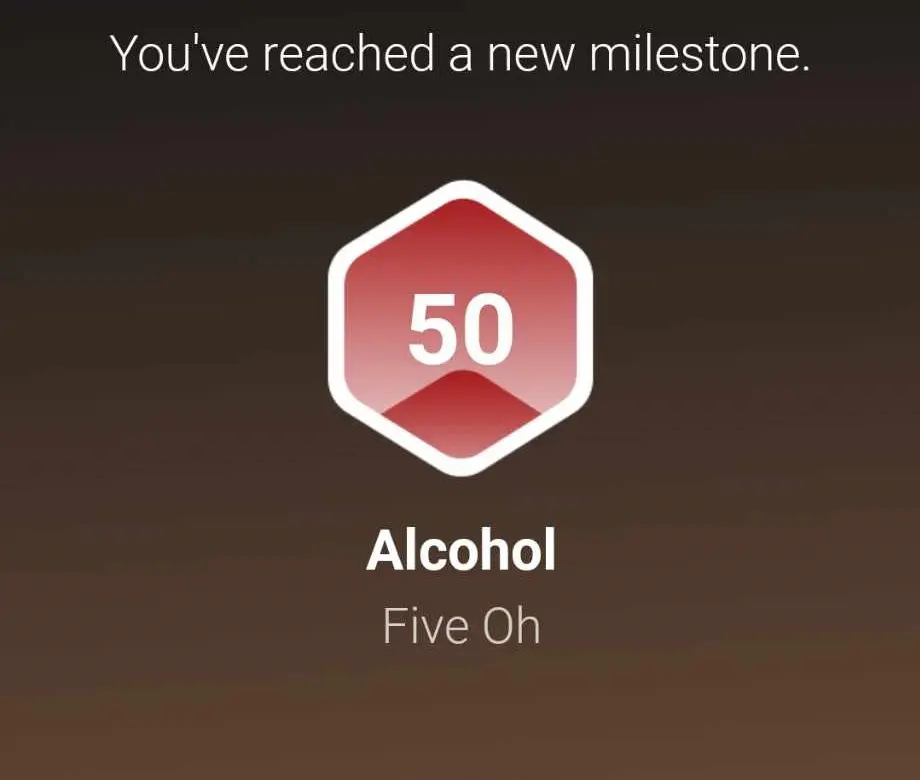
Phantom Hangovers
Today is day 50 for me without touching a drop of alcohol, whiskey, beer, or wine. To say it’s been easy would be a lie. Yesterday was very hard for me. I decided to do some of the things I normally do on a relaxing Sunday afternoon while enjoying a drink, but I did them all sober this time. I kept looking for my drink out of habit, but I had water and green tea instead. And I made it through. I am proud of myself for not drinking on Thanksgiving as well. I hope that you all had a great and SOBER Thanksgiving with your loved ones and family.
So here I am at day 50. My mind is a lot clearer and I am starting to feel happy. Like, generally happy. I am not sure if I’ve ever felt entirely happy in my head. Alcohol is a depressant and will actually make depression worse. My joints are not hurting as bad and I can see a physical difference in my face. It is not swollen anymore. Even though my body is beginning to look and feel better, I still wake up with headaches at times. The first thought I have is “Ugh, I’ve got a hangover!”. But I don’t. I have not had alcohol at all since October 8th. So why do I still feel so bad in the mornings on most days? I did a little research about this. The feeling is called having a “Phanton Hangover”. I think a lot of the phantom hangovers I’m experiencing are from me walking up with a hangover pretty much every other day of the last 30-odd years. My body just expects to wake up feeling terrible. I think it is a bit of a learned behavior from dealing with hangovers on a repeated basis for many many years.
I just saw this comment on someone’s post about having these mini fake hangovers “This is totally normal and, in my experience, continues to happen for months. It’s not fun, but I believe it’s an important part of your psychological recovery. These little hangovers serve as useful reminders. They remind us how much better we are without that poison in our bodies. Keep your chin up. This is OK.  “MrCade
“MrCade
Let that be a helpful reminder to you, and to me, that it could be way worse. Waking up with a small headache isn’t as bad as the hangovers that kept me in bed until 6:00 p.m. at night. Life is better now. You can do it. We can do it.
Below is some information on Phantom Hangovers. 
What is a Phantom Hangover? A phantom hangover is a term for the symptoms that your body creates after abstaining from alcohol for a certain amount of time. These symptoms often start after 48 hours, despite not having had any alcohol during this time. The phantom hangover is usually experienced by heavy drinkers who have stopped drinking. Symptoms can occur anywhere from a few days to a couple of months after quitting alcohol.
Phantom hangovers happen either as a psychological effect of quitting alcohol or as a chemical imbalance in the brain while it is trying to recover from alcohol abuse. After you have stopped drinking alcohol for a period of time, you might wake up one morning surprised that you feel like you have a slight hangover. This symptom can be psychosomatic. Due to a chemical imbalance that creates side effects resulting from suddenly leaving a heavy dose of alcohol your body still expects to be hungover. Many people recovering from alcoholism often say that it is a part of this process you should ignore it.
Symptoms of a phantom hangover:
Headache or Migraine
Fatigue
Muscle Ache
Brain Fog
Nausea, Sick to your stomach feeling
High or Low Blood Pressure
Insomnia, Sleeplessness
The Medical Science Behind Phantom Hangover: Alcohol metabolism: Alcohol is metabolized by the liver, which breaks it down into acetaldehyde and then into acetate. Acetaldehyde is a toxic compound that can cause hangover symptoms. The liver needs time to break down the acetaldehyde, which can cause prolonged hangover symptoms. Acetaldehyde damages your DNA and prevents your body from repairing the damage. DNA is the cell’s “instruction manual” that controls a cell’s normal growth and function. When DNA is damaged, a cell can begin growing out of control and create a cancer tumor. A toxic buildup of acetaldehyde can increase your cancer risk. The rate of alcohol metabolism is constant. Heavy drinkers metabolize alcohol faster than light drinkers or non-drinkers. However, the rate of alcohol metabolism drops substantially in advanced liver disease. While the rate of alcohol metabolism is constant, the rate of alcohol absorption can vary. First, ADH metabolizes alcohol to acetaldehyde, a highly toxic substance, and a known carcinogen. Then, acetaldehyde is further metabolized down to another, less active byproduct called acetate,1 which then is broken down into water and carbon dioxide for easy elimination. Irrespective of the pathway of alcohol metabolism, ethanol, and acetaldehyde are the key compounds researched in relation to alcohol hangovers. There is, however, ongoing debate about their role in the pathology of the alcohol hangover, and given the paucity of empirical data, theoretically, both ethanol and acetaldehyde concentrations could have a direct influence on hangover severity. Many core hangover symptoms (e.g., headache, nausea, apathy, and concentration problems) likely involve central processes. While systemic processes clearly play a role in aspects of alcohol hangover, exposure of the brain to ethanol or its metabolites may ultimately determine the pathogenesis of alcohol hangover (symptoms). Given this, it is important to investigate the capability of peripheral ethanol and acetaldehyde to enter the brain and exert central effects, including a hangover. This is why some of us will have phantom hangovers.
Ways to feel better: If you are replacing your alcohol with sodas, stop now. Carbonated beverages are very unhealthy for you and can cause headaches and dehydration. Eat a large, hearty breakfast first thing in the morning. This will give you energy and keep your body fueled throughout the day. Drinking water throughout the day is also important. Hydration can ease nausea and headaches brought on by the phantom hangover. Physical activity has been the best solution. Don’t just drag around. Get your blood moving and drink water to rehydrate. Your body is repairing itself from the long time it has been unhealthy.
Please remember that this is a blog and not actual medical information. If you feel you cannot stop drinking on your own, you may need medical detox to safely come off alcohol. Struggling with alcohol dependency and overuse can be dangerous and even harder to quit if you try to do it alone. If you feel you need help, find a local AA meeting, or call Addiction No More to help you find a detox or local rehab center near you.
Sources
Hangovers
National Library of Medicine

Author: Anna Marie Skye
Follow Anna Marie Skye as she discusses her struggle with binge drinking and her sobriety journey HERE.



